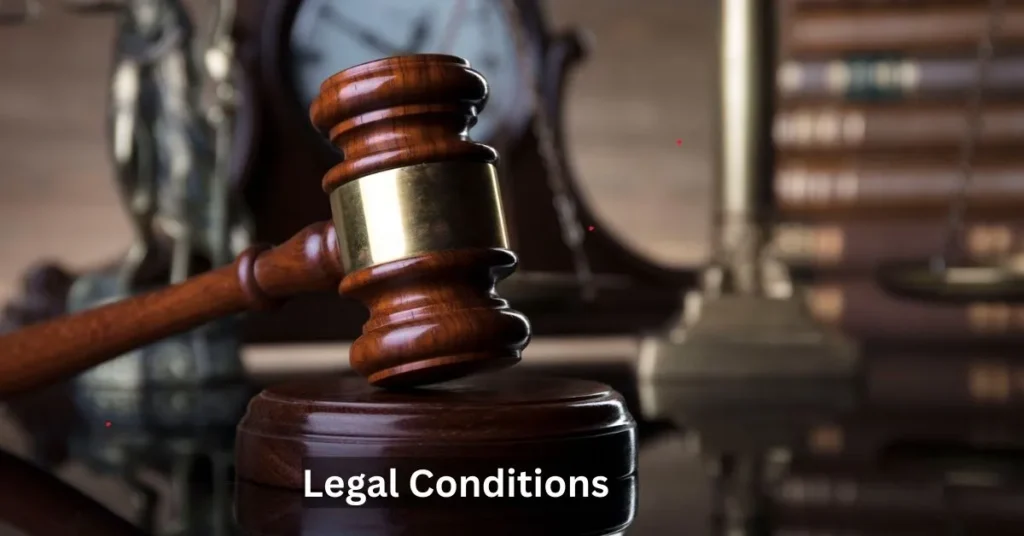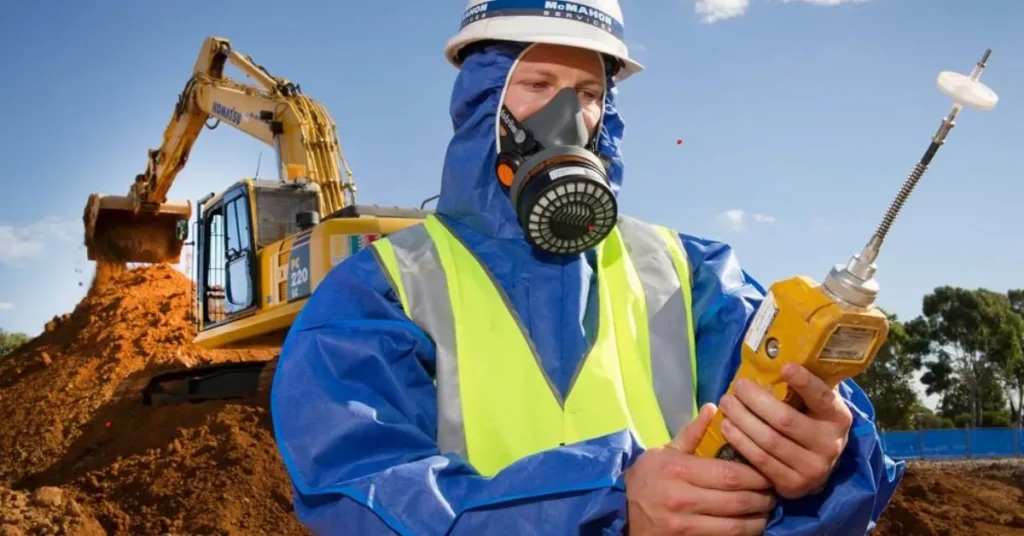Adverse conditions in real estate are factors that negatively affect a property’s value, usability, or desirability. These can include physical issues like structural damage, environmental problems like contamination, and legal matters like title disputes.
Recognizing adverse conditions is crucial for anyone involved in real estate. Buyers need to be aware of these issues to avoid future problems. Sellers should understand them to address any concerns that might deter potential buyers.
Don’t let hidden issues derail your real estate dreams. Know what to look for and protect your investment. Discover how to identify and handle adverse conditions before they become costly mistakes. Stay informed and make smart decisions in your real estate journey.
Types of Adverse Conditions
There are following types of adverse conditions.
Physical Conditions
Structural Issues:

Structural issues, like foundation cracks or roof damage, can seriously impact a property. They reduce its value and pose safety risks. Always inspect the structure before buying a home.
Deferred Maintenance:
Deferred maintenance occurs when owners neglect regular upkeep. This leads to a build-up of repairs and reduces property value. Address maintenance issues promptly to avoid costly fixes.
Water Damage:
Water damage can result from leaks, flooding, or poor drainage. It weakens the structure and promotes mould growth. Fix water issues immediately to protect your investment.
Mold and Mildew:
Mold and mildew thrive in damp environments. They pose health risks and damage property. Regularly check for and address moisture problems to prevent mold growth.
Pest Infestations:
Pests like termites and rodents can cause significant damage. They compromise the integrity of the property. Conduct regular pest control to keep your home safe and sound.
Environmental Conditions
Contaminated soil consists of unsafe substances that can harm fitness and assets price. Test the soil earlier than purchasing land to avoid costly clean-ups. Asbestos, found in some older buildings, poses serious fitness dangers while disturbed. Identify and get rid of asbestos accurately to ensure a healthful living environment.
Radon is a radioactive gasoline that could seep into homes from the floor. High radon levels increase cancer risk. Test for radon and deploy mitigation systems if important. Living near landfills, commercial web sites, or other hazardous locations can decrease property cost and affect fitness. Studies the location thoroughly before buying property.
Noise pollutants from highways, airports, or factories can disrupt daily life and reduce belongings desirability.
Related Article: 7 ESSENTIAL STEPS TO BUYING A HOME: YOUR ULTIMATE GUIDE
Legal Conditions

Legal conditions in real estate involve issues that can complicate property transactions and ownership. These can include title problems, zoning violations, easements, and ongoing litigation. Addressing legal conditions promptly ensures a smoother buying or selling process and protects your investment.
- Title Issues: Problems like unresolved liens or ownership disputes can delay or derail property transactions.
- Zoning Violations: Non-compliance with local zoning laws can result in fines and restrictions on property use.
- Easements and Encroachments: Other parties may have rights to use part of your property, or neighboring structures may encroach on your land.
- Pending Litigation: Ongoing legal disputes involving the property can affect its value and transferability.
Market Conditions
Market conditions greatly influence real estate values and investment decisions. Economic downturns can decrease assets fees and slow income. Conversely, a booming economy boosts demand and raises fees.
Overbuilding leads to an oversupply of houses, inflicting costs to drop. High vacancy rates indicate low demand, affecting rental income and property value. Always analyze market trends before buying or selling real estate.
Impact of Adverse Conditions
Adverse conditions, like structural damage or environmental hazards, can lower property value and complicate transactions they’ll make a property less suited, increase repair prices, and affect funding returns. Addressing these issues promptly helps safeguard your funding and allows smoother real estate dealings.
Property Value
Property value displays how a good deal a domestic or building is well worth within the market. It may be prompted by way of factors like area, circumstance, and market trends. Adverse situations, such as structural issues or environmental hazards, can decrease assets value and make it harder to promote.
- Location: Prime locations typically increase property value.
- Condition: Well-maintained properties are worth more.
- Market Trends: Economic conditions affect property values.
- Adverse Conditions: Issues like damage or contamination decrease value.
Buyer Interest

Buyer interest relies upon on a property’s situation, region, and typical attraction. Negative conditions, such as structural damage or environmental hazards, can deter capacity buyers. Addressing these issues can help appeal to extra interest and make the property extra marketable.
- Condition: Well-maintained properties attract more buyers.
- Location: Desirable locations boost buyer interest.
- Adverse Conditions: Problems like mold or water damage reduce appeal.
- Repairs: Fixing issues can increase buyer interest and improve chances of a sale.
Financing
Adverse conditions can impact financing by making it harder to secure a loan. Lenders might also view houses with structural damage or environmental troubles as excessive-danger, leading to higher hobby rates or outright denial of loans.
Properties with problems like mould or infection may require additional inspections or maintenance earlier than financing is accepted. Addressing these problems early can enhance your possibilities of obtaining beneficial loan terms and finishing the purchase.
Insurance
Adverse conditions can affect insurance coverage and costs. Properties with issues like mold, asbestos, or structural damage often face higher insurance premiums. Some insurers may even refuse coverage for properties with significant problems.
Addressing and fixing these conditions can help lower insurance costs and ensure coverage. Regular maintenance and prompt repairs reduce risks and make it easier to secure affordable insurance.
Related Article: ULTIMATE GUIDE TO LORAIN COUNTY, OHIO REAL ESTATE TRANSFERS BY OWNER
Mitigating Adverse Conditions
To mitigate damaging conditions, inspect residences thoroughly and deal with troubles like structural harm or leaks directly. Remediate environmental dangers, such as mold or radon, to protect health. Disclose problems absolutely and negotiate maintenance or fee changes as needed. This approach helps maintain property value and ensures a smoother transaction.
Inspections
- Purpose: Inspections reveal property issues before buying or selling.
- Scope: Inspectors check structural elements, systems, and environmental conditions.
- Findings: They identify problems like leaks, damage, or pests.
- Benefits: Early detection allows for repairs and price adjustments.
- Action: Use inspection results to make informed decisions and negotiate terms.
Remediation

Remediation includes solving problems that affect an assets. This will include repairing structural damage, eliminating mold, or cleansing up environmental dangers. Addressing these troubles early can help preserve assets value and make it safer for occupants.
- Identify Issues: Find problems like mold, water damage, or asbestos.
- Plan Repairs: Create a plan to fix the identified issues.
- Hire Professionals: Get experts for specialized tasks like mold removal.
- Follow Regulations: Ensure all work complies with local laws and standards.
- Monitor Progress: Check that repairs are done correctly and on time.
Disclosure
Disclosure entails actively informing capability buyers about any regarded problems with the belongings. Being sincere and transparent helps construct believe and avoids prison troubles later. It’s vital to disclose troubles like structural harm, beyond flooding, or environmental risks.
- Inform Buyers: Tell buyers about any known issues with the property.
- Provide Documentation: Share reports from inspections and repairs.
- Follow Laws: Ensure you comply with local disclosure laws and regulations.
- Maintain Transparency: Be clear and upfront about all known problems.
Avoid future legal issues by disclosing everything honestly.
Related Article: HOW MUCH DOES IT COST TO MOVE A MOBILE HOME IN 2024?
Negotiation
Negotiation is the method where customers and dealers speak terms to attain an agreement in real estate transactions. Consumers often negotiate for a decrease charge or request precise repairs to be finished. Whilst sellers goal to get the satisfactory feasible terms. Effective negotiation ensures both parties are happy with the deal.
Appropriate conversation and compromise are critical for successful negotiations. Adjusting the charge, requesting repairs, and supplying incentives are key components of the procedure. Once the phrases are agreed upon, the deal can flow forward easily.
Frequently Asked Questions
What are adverse conditions in real estate?
Factors that negatively affect property value, usability, or desirability.
Why is it important to disclose known property issues to buyers?
To build trust and avoid legal problems.
How can adverse conditions impact property financing?
They can make securing a mortgage harder.
What is the role of inspections in real estate transactions?
To reveal property issues before buying or selling.
How can remediation help maintain property value?
By fixing issues like mold or structural damage.
Conclusion
Understanding and addressing adverse situations in real estate is critical for protective you’re funding. Whether you’re a purchaser or a supplier, being aware about bodily, environmental, felony, and market-associated problems can prevent luxurious mistakes and ensure a smoother transaction procedure.
By conducting thorough inspections, disclosing recognized issues, and negotiating efficiently, you may maintain belongings cost and avoid future complications. Stay informed, proactive, and obvious to make smart decisions in your real estate journey.

Paul Mitchell, our website’s author, leverages 6 years of business expertise to provide insightful content. His wealth of experience enriches our platform, offering valuable insights for our readers.











